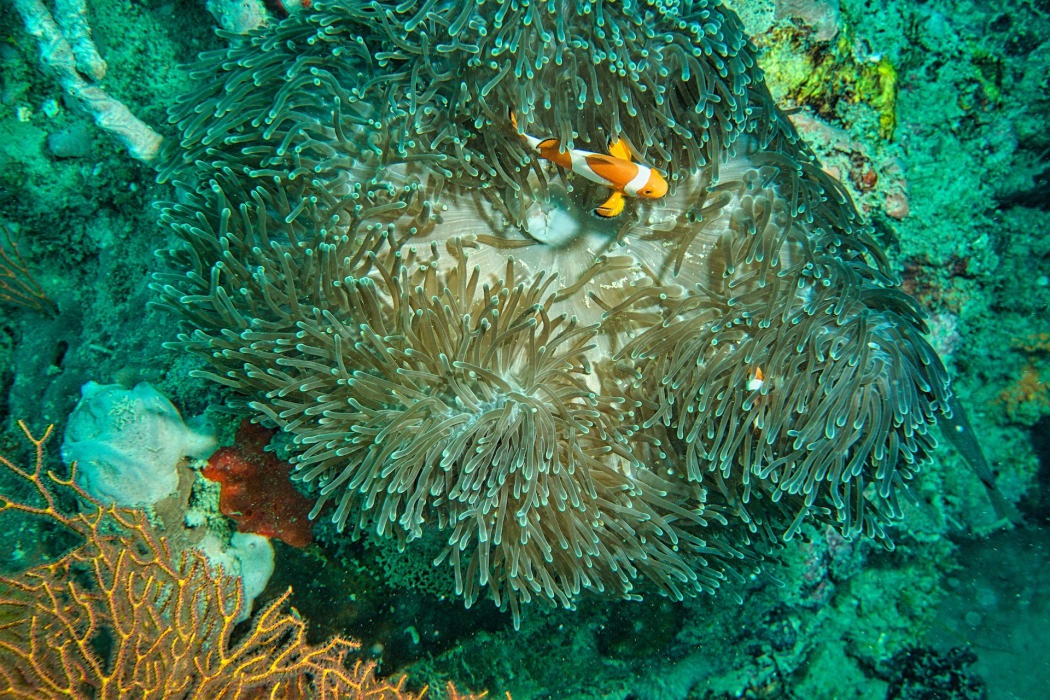Marine invasive species are an ecological and economic threat to Pacific nations, the founder of a New Zealand-based ocean conservation and science organisation says.
James Nikitine, who founded Blue Cradle in 2020, said species of algae, mollusks and worms could travel around the world and “invade local ecosystems” by hitching a ride on the bottom of ships. Nikitine said the risk was higher now than before because of the “mind boggling” number of container ships in the ocean.
“If (invasive species) enter foreign waters and have a drastic impact on say a pearl farm somewhere in French Polynesia the consequences would be in the hundreds of millions or [even] billions,” he said.
“As the waters warm, we are going to get more invasive species hitching a ride on ships, we are going to get probably more species settling from the tropical areas in the subtropical and temperate areas.”
“It’s both being exacerbated by increased shipping traffic and it is also being exacerbated by the increased impacts of climate change.”
In New Zealand, Nikitine said the mediterranean fan worm and the Asian seaweed, undaria pinnatifidam, were both invasive species.
He said in French Polynesia, South African oysters were proliferating slowly, while in the Carribean, the Lionfish – a native species to the Indo-Pacific – had settled and become a pest. The country has taken to controlling its numbers by commercialising it, using the fish for food and parts of it as jewellery.
“Our strategy in the South Pacific will need to somehow potentially integrate some of those economic opportunities,” Nikitine said.
“If you think of [seaweed] undaria, if it is settled are there ways that we can use these seaweeds for our own consumption or can we use them for alternative materials?”
He said invasive seaweed in French Polynesia was already being used as a fertilizer.
However, Nikitine said the conversation could not become an economic one where certain species were encouraged to enter the ecosystem. According to Secretariat of the Pacific Regional Environment Programme (SPREP), marine ecosystems are affected by both marine and terrestrial invasive species.
Invasive species are the lead cause of extinction of endemic Pacific species, SPREP’s 2013 State of conservation in Oceania (link https://www.sprep.org/attachments/Publications/BEM/ state-conservationoceania-report.pdf) report said.
The report noted that marine invasive species were spread through ballast water and hull bio-fouling in ships, as well as marine debris, which they use as rafting habitats.
In another (link https://www. sprep.org/attachments/Publications/BEM/battling-invasivespeciespacific.pdf 2016 report), it warned that invasive species could alter the entire local ecology, leading to the collapse of fisheries and threatening endangered species.
“Pacific island countries need increased development and implementation of early detection and rapid response systems,” it said.
Meanwhile, Blue Cradle conducted workshops in September 2022 in Tahiti and Mo’orea, and in March this year in Auckland and Nelson to address the issue.
The workshops were in partnership with New Zealand science organisation the Cawthron Institute and the Coral Reef Initiative for the South Pacific.
• CALEB FOTHERINGHAM is a journalist with RNZ Pacific. The views expressed in this article are the author’s and do not necessarilly reflect those of this newspaper.




